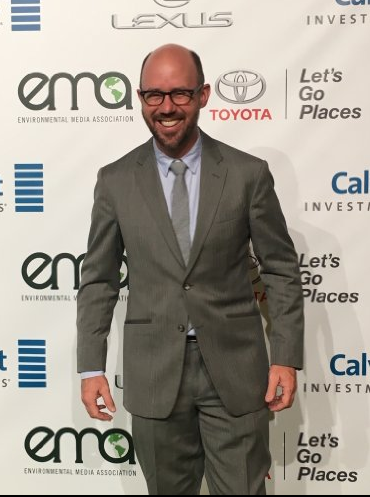Macomber ’96 Discusses Producing Comedy by Arteta ’89, White ’92


Beatriz at Dinner, a darkly comedic film directed by Miguel Arteta ’89, written by Mike White ’92, and co-produced by Bill Macomber ’96, world premiered at the Sundance Film Festival on January 22. The film premiered with positive reviews with magazines like Vanity Fair calling it “remarkable” with a “timely shiver to it.”
After acclaimed films such as Chuck & Buck (2000) and The Good Girl (2002), Arteta and White have reunited again for Beatriz, which starts Salma Hayek as a holistic therapist. She attends a wealthy client’s dinner party after her car breaks down and comes up against a real estate tycoon portrayed by John Lithgow.
“We are all very excited about this new film,” says Jeanine Basinger, Corwin-Fuller Professor of Film Studies. “We hope to bring Miguel Arteta to Wesleyan this semester to show the film and we are all looking forward to it.”
Bill Macomber ’96, the primary post-producer of the film, said, “When I first read the script I loved it. Environmental issues are really close to my heart. The film is about many things, but it’s a proxy for what’s wrong with climate change deniers and big developers who don’t play by the rules.”
Macomber, whose first post-Wesleyan job was with Arteta after graduation on his first feature film, Star Maps, says, “Beatriz at Dinner is a reunion of sorts, although I was just a production assistant on Star Maps way back in the day.”
College connections are important, he notes, and not just when students are looking for their first job: “For me, the bond between Wesleyan graduates, especially Wesleyan filmmakers, is still as strong at age 43 when it was at age 23. People are as supportive of me now as they were then, and I try to be the same supportive person.”
When asked what advice Macomber has for graduates looking for their first big break, he reflected on advice that film industry veteran and Corwin-Fuller Professor of Film Studies Jeanine Basinger gave him. “Something Jeanine told me a long time ago is that you need to constantly reevaluate whether you enjoy what you’re doing in that moment,” he said. “After working in development, I noticed I wasn’t happy and I wasn’t productive. I switched to the more technical, collaborative work of post-production and my spirits and my careers lifted.”
How do you know if you’re doing what you should be doing? The answer is simple to Macomber: “Be aware if you’re enjoying what you’re doing and if you’re valued for doing that job. Opportunities come from hard work and doing a good job.”

